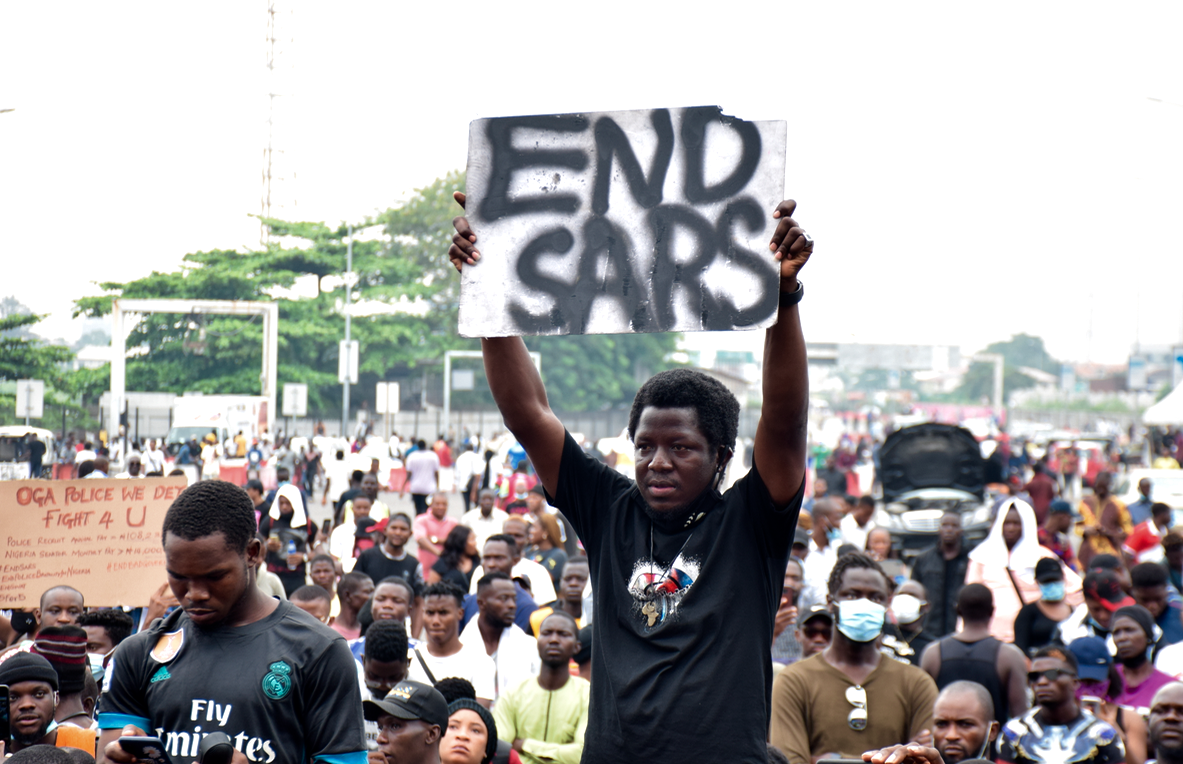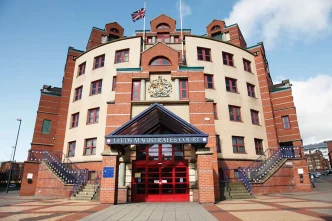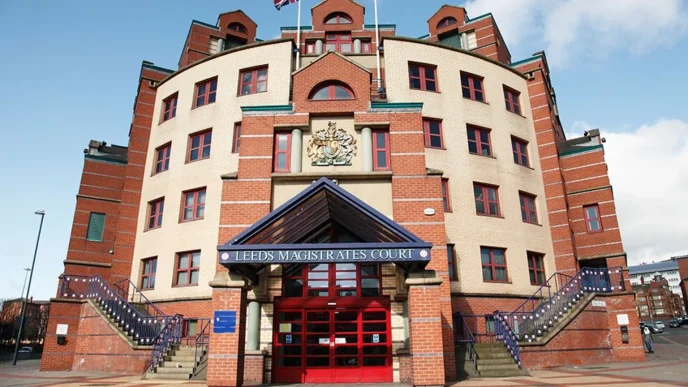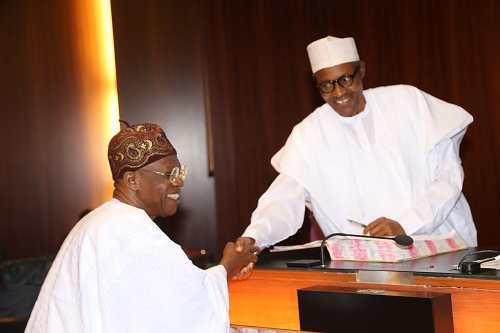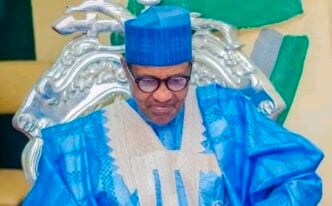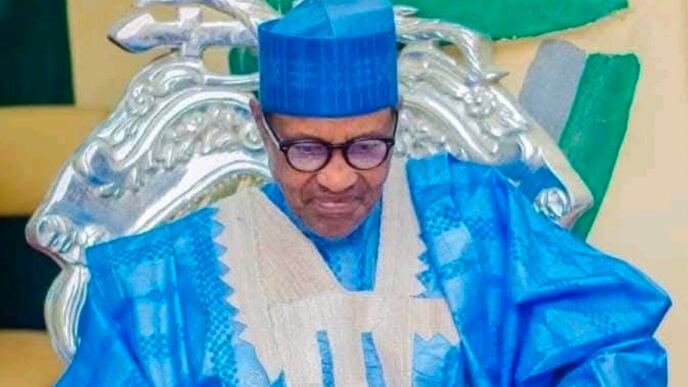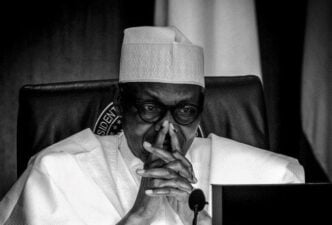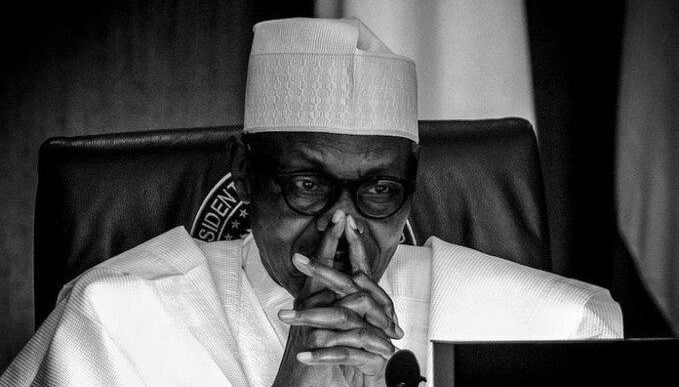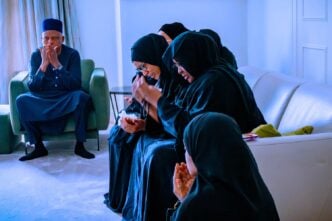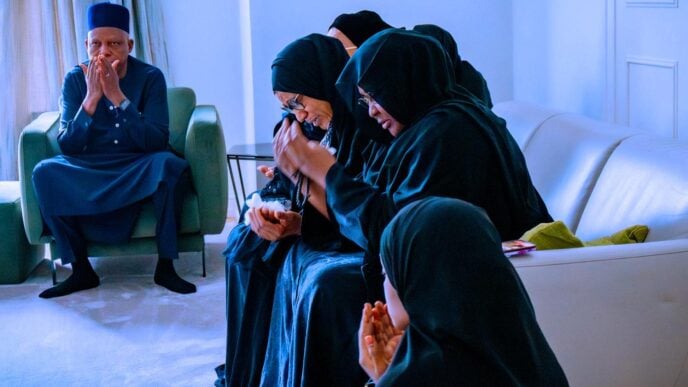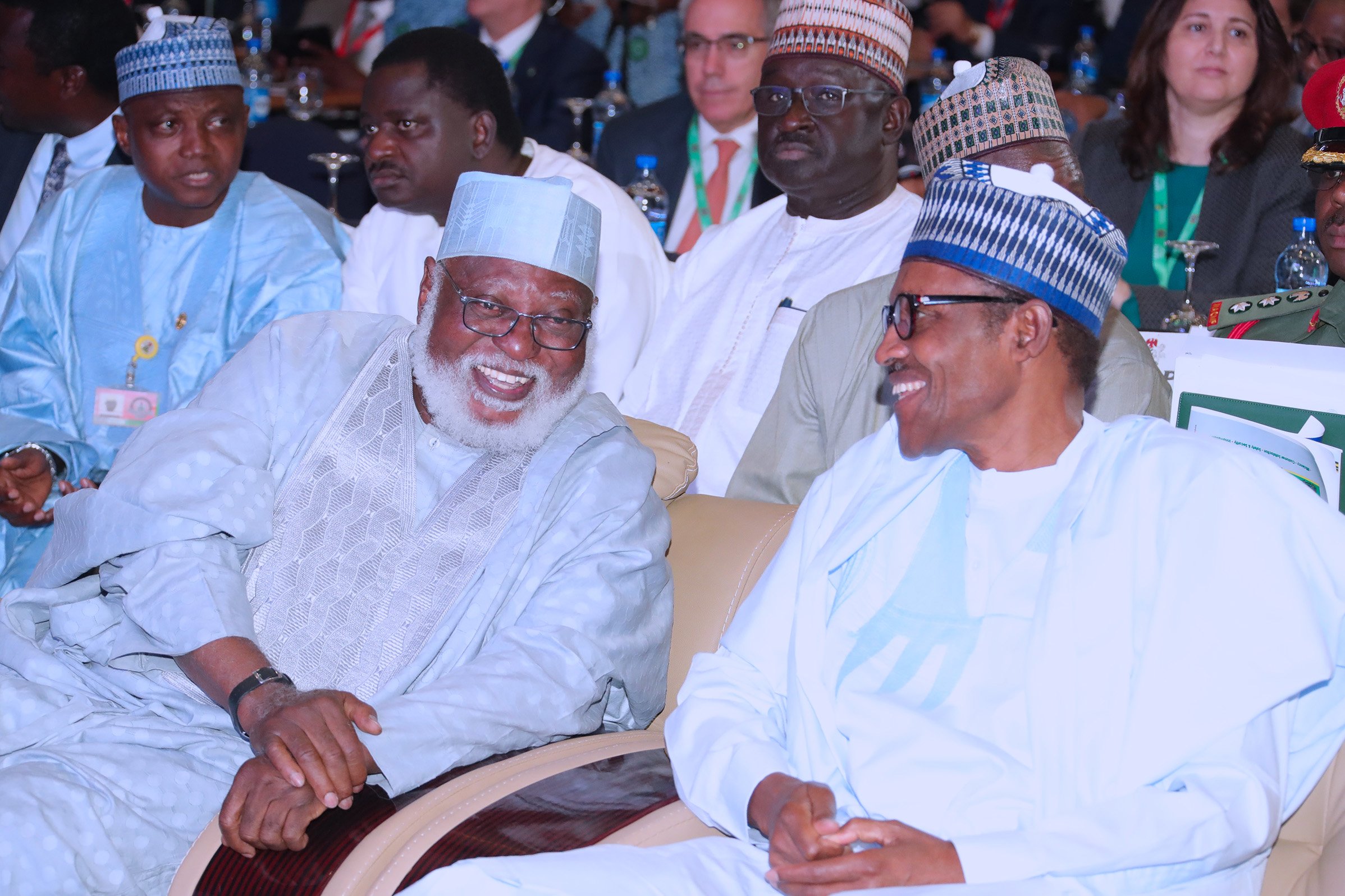For over four decades, Muhammadu Buhari, Nigeria’s austere former military ruler and two-term civilian president, loomed large over the country’s political consciousness, first as a no-nonsense general who promised discipline, and later as a democratically elected president who pledged change.
His name stirred deep loyalty and just as much loathing, depending on who was speaking. To his supporters, Buhari was incorruptible, a leader of Spartan character who rose above the filth of Nigerian politics. But to critics, he was a hardliner who never quite shed the authoritarian habits of the past.
Even in death, Buhari’s legacy remains fraught with questions, contradictions, and controversy.
Here are some of the most defining and divisive moments of his long public life.
Advertisement
THE 1983 COUP: ORDER BY FORCE
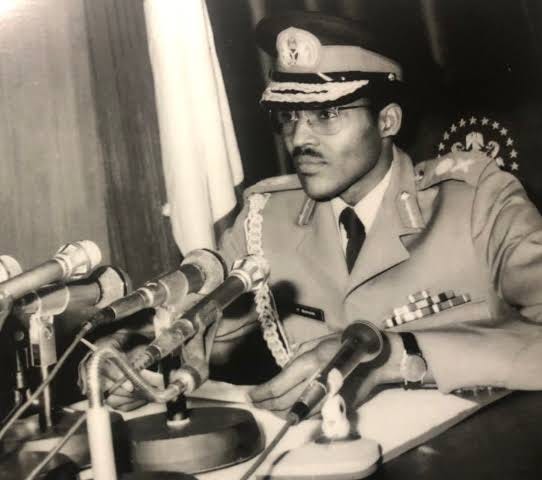
On the last day of 1983, Buhari emerged as Nigeria’s new ruler, not by vote, but by boot. He and other senior officers toppled the democratically elected government of President Shehu Shagari, accusing it of corruption and economic mismanagement.
Advertisement
In his first public address, Buhari promised to save “our great nation from total collapse,” but his solution was ruthless. He jailed dozens of politicians, mostly from the Shagari administration, and launched the now-infamous War Against Indiscipline (WAI). Soldiers flogged citizens for jumping queues, civil servants were forced to recite national slogans, and public officials were tried in military tribunals and handed lengthy prison sentences.
Though some applauded the return of “order,” human rights groups decried the draconian measures and the silencing of dissent. The Buhari government banned strikes, curbed press freedom, and detained critics. During his administration, Fela Kuti, the popular musician and activist, was arrested on currency smuggling charges, which his supporters allege were concocted.
THE UMARU DIKKO AFFAIR
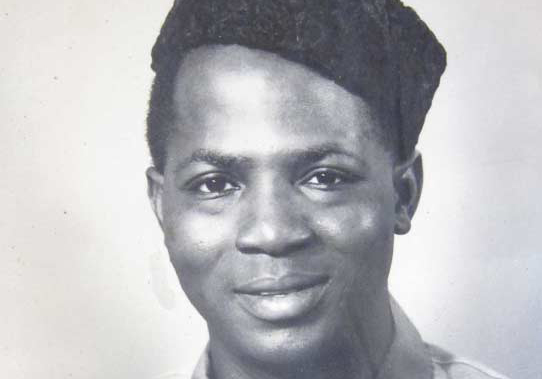
Nothing captured the brazenness of Buhari’s regime like the botched abduction of Umaru Dikko in 1984. Dikko, a former transport minister accused of embezzlement, had fled to London. Buhari’s regime allegedly hired mercenaries to kidnap him, sedate him, and stuff him into a crate marked “diplomatic baggage”.
Advertisement
An Israeli believed to be a former Mossad agent, Alexander Barak, was recruited to lead the abduction team. The group also included Mohammed Yusufu, a Nigerian intelligence officer, with two other Israelis — Felix Abitbol and Lev-Arie Shapiro, a doctor tasked with administering an anaesthetic to Dikko.
British customs officers, alerted by tip-offs, opened the crate just before it was loaded onto a Nigeria-bound plane. The scandal embarrassed the Nigerian government and soured diplomatic ties with the UK. Buhari never publicly acknowledged the operation.
THE 53 SUITCASES SCANDAL
In the heat of his anti-corruption drive, a different story slipped through the cracks. In June 1984, 53 uninspected suitcases reportedly passed through Murtala Muhammed Airport without customs clearance. The cargo allegedly belonged to the Emir of Gwandu, whose son, Mustapha Jokolo, was Buhari’s aide-de-camp.
Advertisement
At a time when ordinary Nigerians were being punished for economic sabotage, the incident raised serious questions about selective justice. Buhari denied involvement, but the optics were damning.
‘BABA GO SLOW’: DELAY IN NAMING MINISTERS
Advertisement
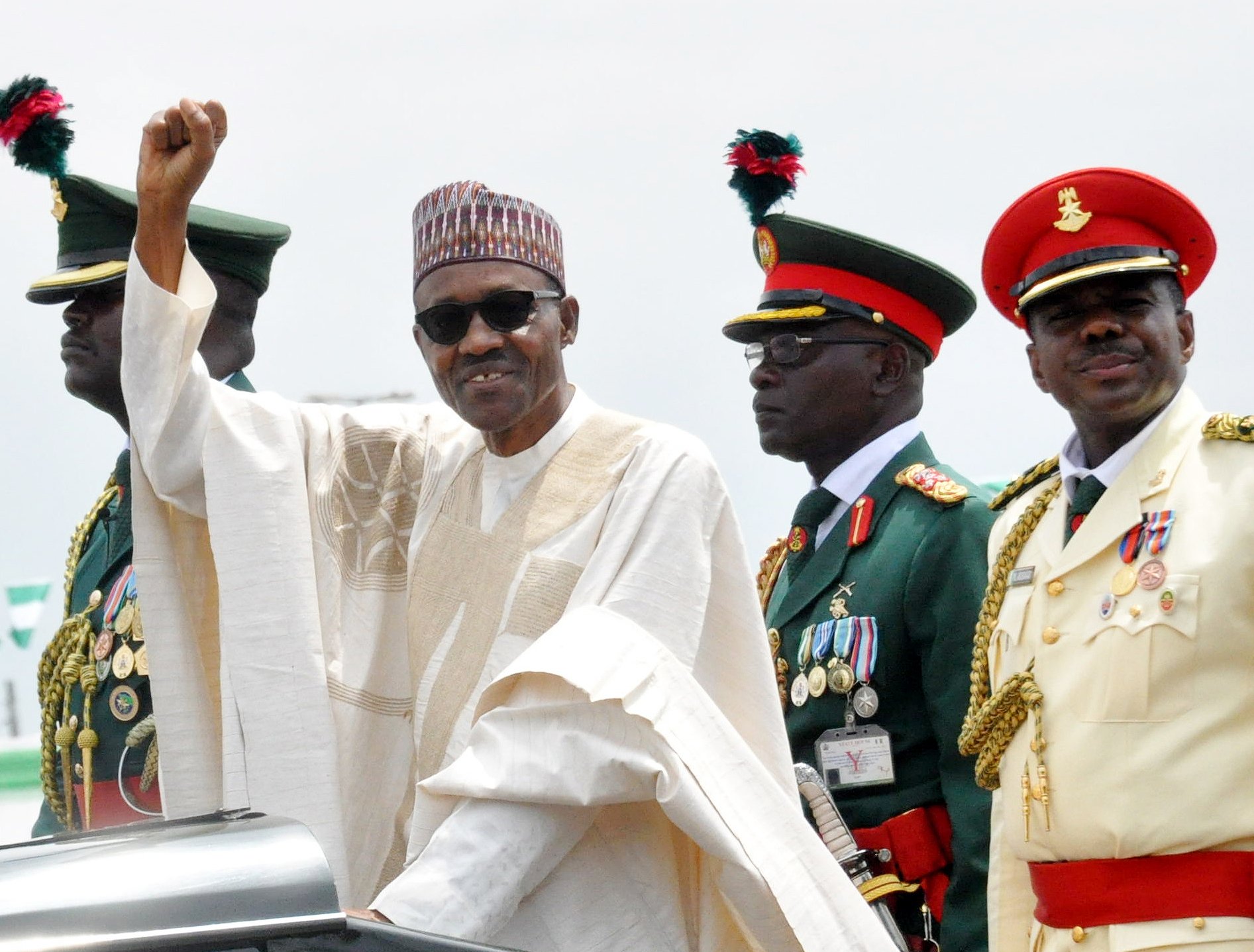
After years of trying, Buhari returned to power in 2015, becoming Nigeria’s first opposition candidate to defeat a sitting president. His campaign was hinged on fighting corruption, restoring security, and reviving the economy.
Advertisement
After his historic win, he took a staggering seven months to unveil his cabinet, a delay that drew heated criticism from political and civil society circles.
The prolonged wait created uncertainty in the markets and sparked concerns over governance paralysis. Critics coined the nickname “Baba Go Slow”, reflecting public frustration with the president’s cautious, sometimes sluggish, decision-making style.
Advertisement
Buhari defended the delay as a necessary move to screen for credible and competent individuals, but it set a tone of inertia that would define much of his first term.
THE ZARIA KILLING OF SHIA MUSLIMS
Barely six months into Buhari’s presidency, Nigeria witnessed one of its bloodiest military crackdowns in recent history.
In December 2015, soldiers opened fire on members of the Islamic Movement in Nigeria (IMN) in Zaria, Kaduna state, after the group was accused of blocking the convoy of Tukur Buratai, then chief of army staff, and attempting to assassinate him.
Over three days, troops raided IMN sites, killing at least 300 people, according to Human Rights Watch and Amnesty International. TheCable reported that the victims were buried in mass graves, and the group’s leader, Ibrahim El-Zakzaky, was arrested and detained alongside his wife.
RAID OF JUDGES’ HOMES
Buhari’s anti-corruption crusade dominated his presidency. He vowed to “kill corruption before it kills Nigeria”, but it didn’t take long before his critics accused him of targeting political opponents while shielding allies.
In 2016, the Department of State Services (DSS) raided the homes of several senior judges in midnight operations, alleging corruption. Legal experts and civil society groups slammed the move as an attack on judicial independence.
THE PLAGIARISM SCANDAL

In 2016, Buhari launched a national reorientation campaign titled “Change Begins With Me.” The speech he delivered, however, bore striking similarities to Barack Obama’s 2008 victory address.
Buhari: “We must resist the temptation to fall back on the same partisanship, pettiness and immaturity that have poisoned our country for so long.
“Let us summon a new spirit of responsibility, spirit of service, of patriotism and sacrifice, Let us all resolve to pitch in and work hard and look after, not only ourselves but one another, What the current problem has taught us is that we cannot have a thriving army of rent seekers and vested interests, while the majority suffers.”
Obama: “In this country, we rise or fall as one nation, as one people. Let’s resist the temptation to fall back on the same partisanship and pettiness and immaturity that has poisoned our politics for so long.
“So let us summon a new spirit of patriotism, of responsibility, where each of us resolves to pitch in and work harder and look after not only ourselves but each other. Let us remember that, if this financial crisis taught us anything, it’s that we cannot have a thriving Wall Street while Main Street suffers.”
Buhari’s team blamed an “overzealous staff”, but the damage was done. For a president who campaigned on integrity, it was a costly lapse.
EXTENDED MEDICAL TRIPS AND THE MYSTERY OF ABSENCE
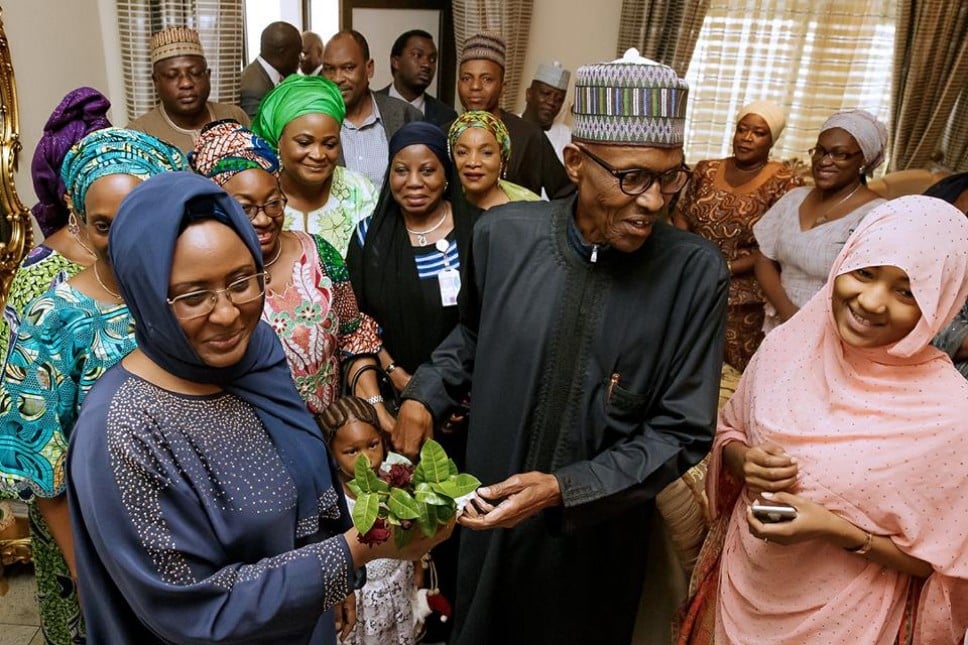
Throughout his presidency, Buhari spent extended time abroad, mainly in London, for undisclosed medical treatment.
In 2017 alone, he was gone for 152 days. For a country battling insecurity, inflation, and mass unemployment, his repeated absences sparked fears about who was truly in charge.
The presidency offered little clarity, and while Vice President Yemi Osinbajo occasionally acted in his stead, many Nigerians felt adrift and leaderless.
#LAZYNIGERIANYOUTHS
At a Commonwealth forum in 2018, Buhari said many Nigerian youths “sit down and do nothing” but expect free education, healthcare, and housing because their country is “an oil-producing nation”.
TheCable’s Mayowa Tijani reported the story, and almost instantly, it triggered a wave of outrage on social media with the hashtag #LazyNigerianYouth quickly gaining momentum and trending nationwide.
Under the hashtag, young people flooded social media with stories of their hustle and hardship. Buhari never formally apologised for the controversial utterance.
TWITTER BAN: CENSORSHIP IN THE DIGITAL AGE
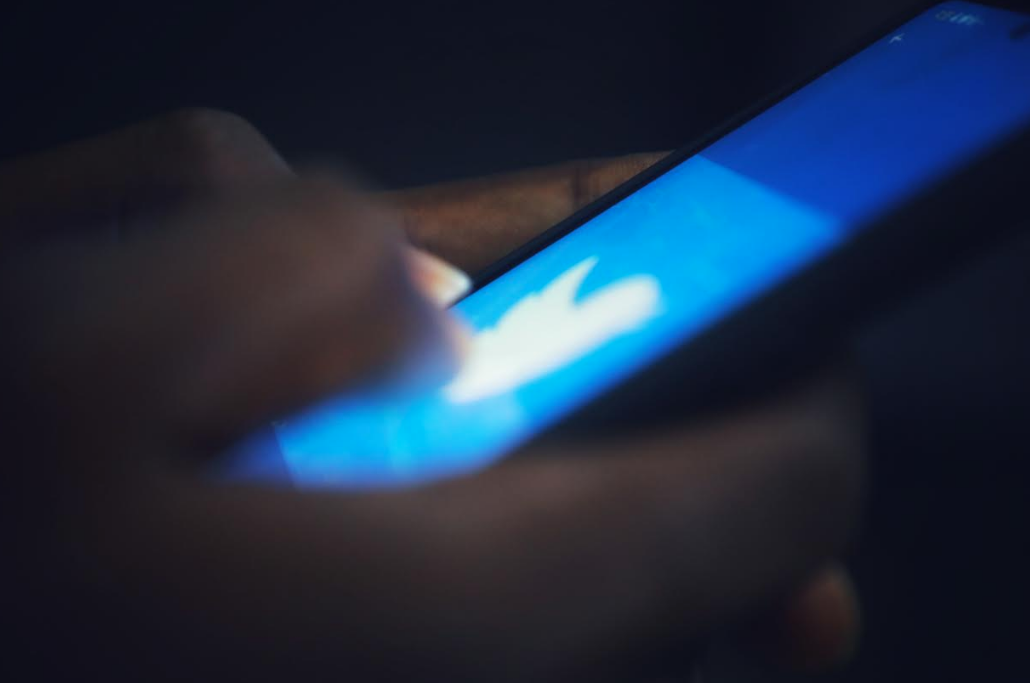
On June 2, 2021, Twitter (now X) deleted one of Buhari’s tweets and placed his account on read-only mode for 12 hours for violating its policies against abusive behaviour.
Two days later, the presidency banned the platform in Nigeria.
For seven months, millions of Nigerians were locked out of Twitter. Activists, entrepreneurs, and journalists protested what they called an authoritarian overreach. The platform was restored after Twitter agreed to certain conditions, including registering as a business entity in Nigeria and paying taxes.
The government insisted it was protecting national security, but the ban was widely seen as an attempt to silence criticism.
#ENDSARS AND LEKKI TOLL GATE SHOOTING
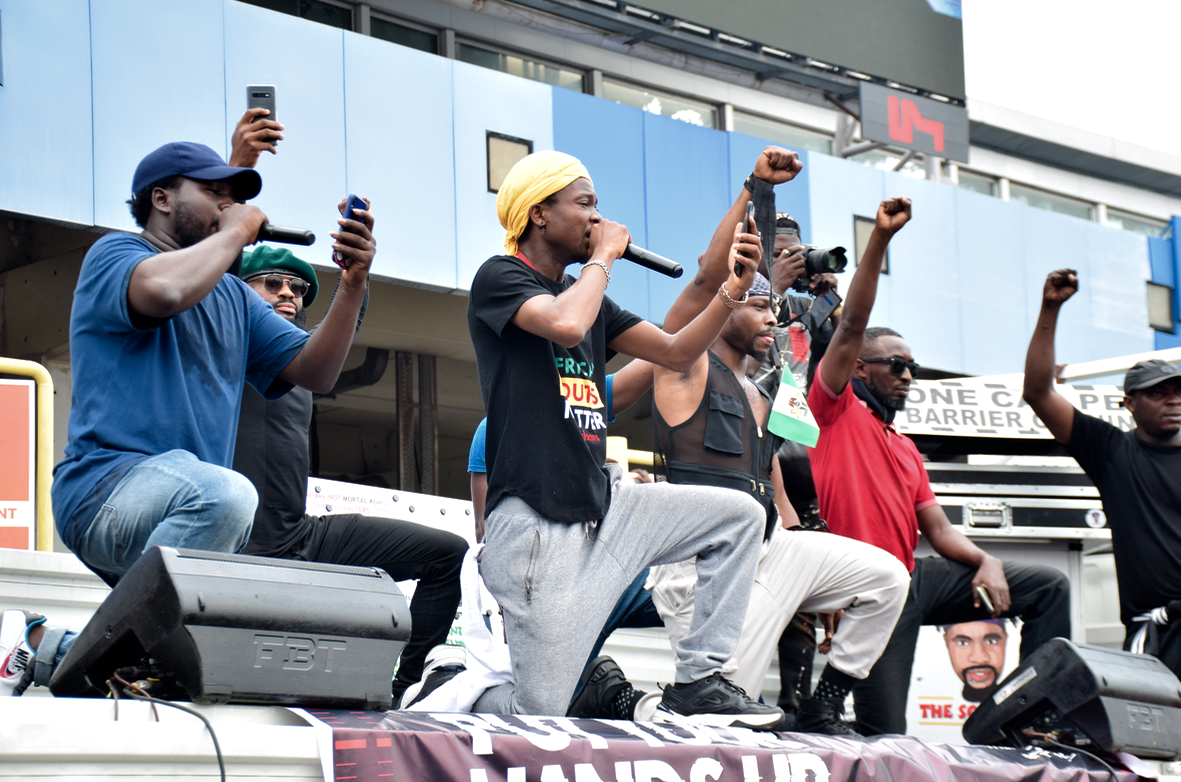
One of the darkest moments of Buhari’s presidency came on October 20, 2020. After days of protests against police brutality under the #EndSARS movement, soldiers allegedly opened fire on unarmed demonstrators at the Lekki toll gate in Lagos.
Multiple witnesses reported fatalities, but the state government denied any wrongdoing. Buhari’s televised address in the aftermath ignored the killings altogether. His silence further inflamed tensions and widened the trust gap between the state and its citizens.
THE NAIRA REDESIGN DEBACLE
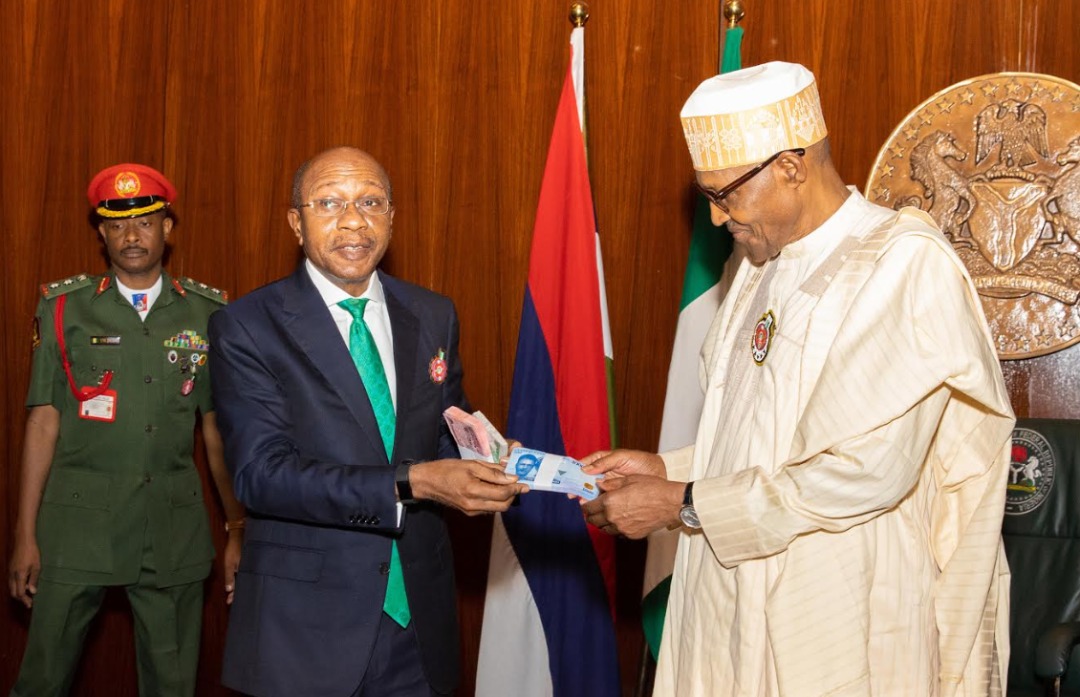
In the lead-up to the 2023 elections, Buhari’s government implemented a sudden naira redesign policy, aimed at curbing vote-buying and flushing out illicit cash.
But the rollout was chaotic.
Banks ran out of new notes, long queues formed, businesses stalled, and protests erupted across multiple states, some leading to deaths from clashes or exhaustion in queues, until the supreme court intervened to restore order.
The apex court extended the validity of the old naira notes and ruled that the federal government’s naira redesign policy was unconstitutional.
THE PARADOX OF POWER
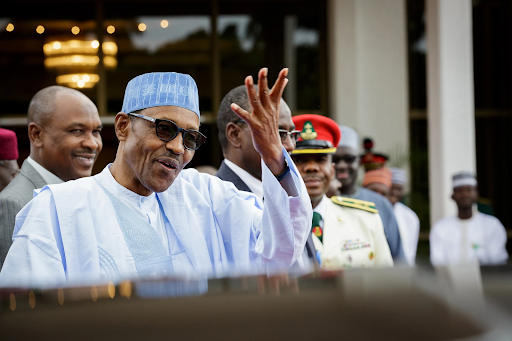
Muhammadu Buhari leaves behind a nation both changed and unchanged. He came with a reputation for discipline and a promise to reset Nigeria’s moral compass. But time and power revealed contradictions: the anti-corruption crusader surrounded by controversies, the democrat with authoritarian reflexes and the number one citizen whose silence stung louder than any speech.
In the end, Buhari was indeed a man of his time as much as he was a mirror of Nigeria itself: complex, divided, and perpetually in search of redemption.
